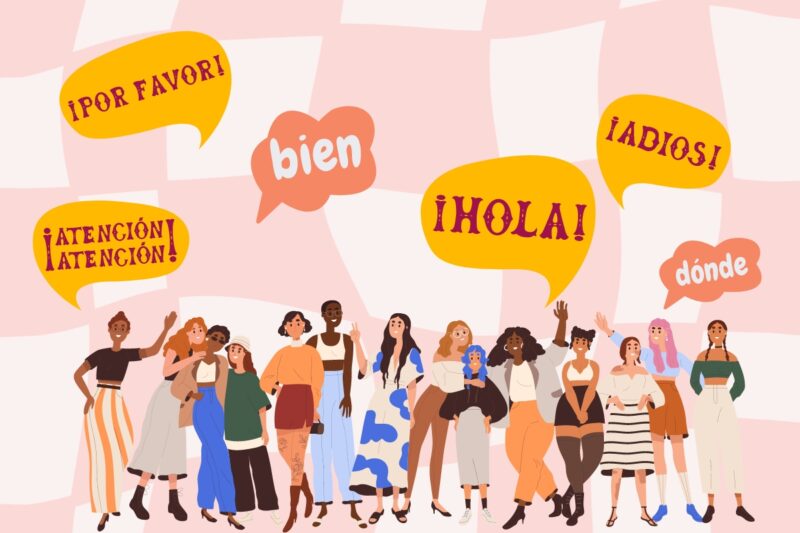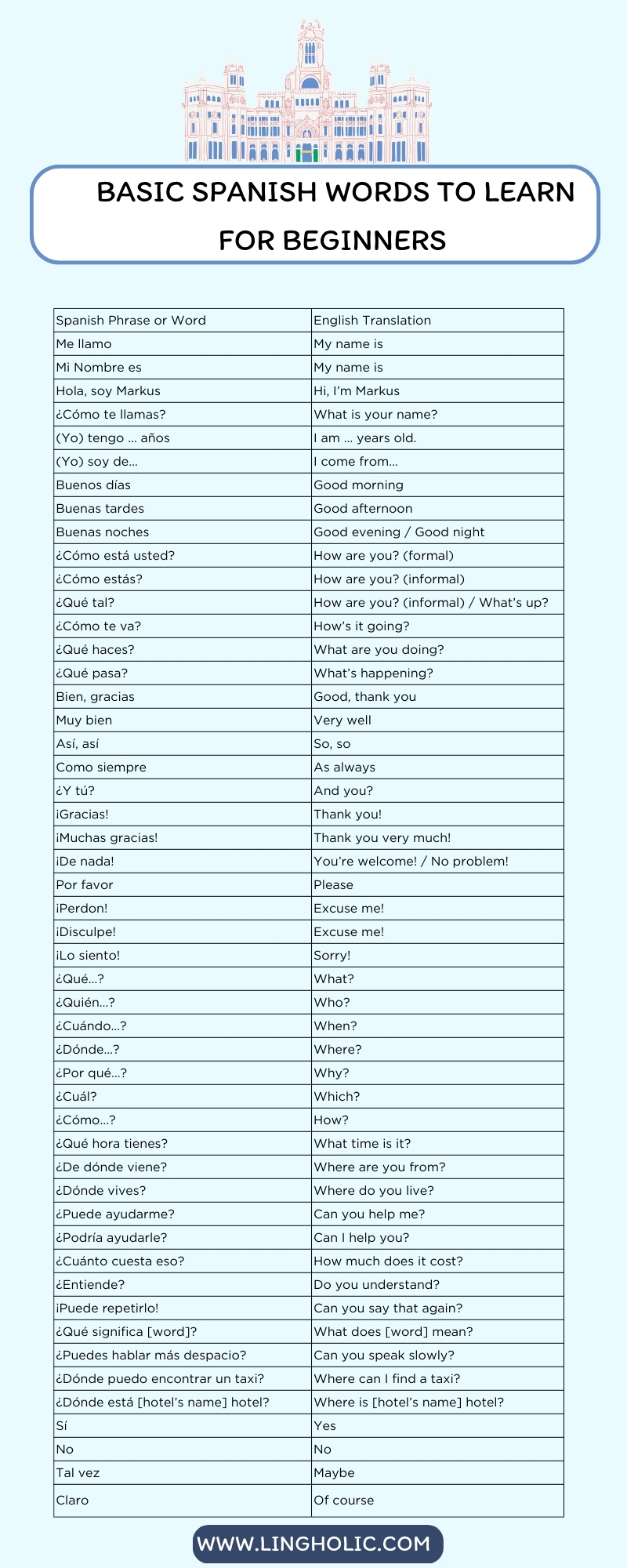Picking up a few Spanish phrases before heading to a Spanish-speaking area can utterly change the vibe of your trip. Being able to chat with the locals in their own tongue isn’t just handy—it’s a meaningful nod of respect and friendliness.
Even a basic “hola” (hello) or “gracias” (thank you) can work wonders, ushering in genuine smiles and sparking connections that no language barrier can dull.
For travelers aiming to dive deeper into their adventures, mastering some key Spanish phrases is a game-changer. It’s not just about making everyday interactions smoother; it shows a genuine interest in embracing another culture.
50 Essential Spanish Words and Phrases

Greetings and Common Courtesies in Spanish
Having a good start in the conversation is essential, and this begins with the proper use of greetings and courtesies. Spanish greetings often depend on the time of day:
- Morning: Buenos días (Good morning)
- Afternoon: Buenas tardes (Good afternoon)
- Evening/Night: Buenas noches (Good evening / Good night)
Following the initial greeting, these phrases are commonly used to continue the interaction:
- To inquire formally: ¿Cómo está usted? (How are you? [formal])
- To inquire informally: ¿Cómo estás? or ¿Qué tal? (How are you? [informal])
- To show interest: ¿Y tú? (And you?)
Responses to greetings can include:
- Positive: Bien, gracias (Good, thank you) or Muy bien (Very well)
- Neutral: Así, así (So-so) or Como siempre (As usual)
Introducing Yourself in Spanish
Being able to introduce oneself is a fundamental skill. The two most straightforward statements for self-introduction are:
- Me llamo… (My name is…)
- Mi nombre es… (My name is…)
When offering more information about yourself, you might say:
- (Yo) tengo … años (I am … years old.)
- (Yo) soy de… (I come from…)
When seeking the same information, you can ask:
- ¿Cómo te llamas? (What is your name?)
Expressions of Courtesy in Spanish
Politeness paves the way to good relations and these common expressions are key:
- Gratitude: ¡Gracias! or ¡Muchas gracias! (Thank you! / Thank you very much!)
- Responding to gratitude: ¡De nada! (You’re welcome! / No problem!)
- Request: Por favor (Please)
- Apologizing or getting attention: ¡Perdón! or ¡Disculpe! (Excuse me!)
- Expressing regret: ¡Lo siento! (Sorry!)
Interrogative Words in Spanish
Questions are pivotal for engaging in conversations and gathering information:
- ¿Qué…? (What?)
- ¿Quién…? (Who?)
- ¿Cuándo…? (When?)
- ¿Dónde…? (Where?)
- ¿Por qué…? (Why?)
- ¿Cuál? (Which?)
- ¿Cómo…? (How?)
These can be built upon for specific questions like:
- ¿Qué hora es? (What time is it?)
- ¿Dónde puedo encontrar un taxi? (Where can I find a taxi?)
Key Spanish Verbs: Tener, Necesitar, Querer
Grasping the verbs to have (tener), to need (necesitar), and to want (querer) is useful:
- Tener (to have)
- Necesitar (to need)
- Querer (to want)
Use these in various scenarios such as:
- ¿Tienes…? (Do you have…?)
- Necesito… (I need…)
- No tengo idea (I have no idea)
Celebratory Phrases in Spanish
When engaging in festive moments or celebrations, expressions of joy and well-wishing are important. One might hear:
- ¡Felicidades! (Congratulations)
- ¡Que lo pases bien! (Have a good time!)
- ¡Feliz Cumpleaños! — Happy Birthday!
- ¡Diviértete! — Have fun!
- ¡Buen provecho! — Bon appetit!
- ¡Bienvenidos! / ¡Bienvenidas! — Welcome!
- Salud! — Cheers!
Bidding Farewell in Spanish
Closing a conversation gracefully is just as important as opening one. To say goodbye, one might use:
- Adiós — Goodbye
- Chao — Goodbye
- Hasta luego — See you later (most likely today)
- Hasta mañana — See you tomorrow
- Hasta luego — See you (informal)
- ¡Cuídate! —Take care!
- ¡Que tenga un lindo día! — Have a nice day!
- ¡Hasta pronto! — See you soon!
- ¡Buen viaje! — Have a good trip!
Remember to adjust the level of formality based on the relationship and context.

I am Edward Quin, a teacher and part-time freelance writer specializing in Spanish and English. With a major in these languages, I have a deep grasp of their structures, cultural richness, and literary traditions. My passion for languages inspired me to become a high school teacher, where I motivate students to discover new cultures and languages.
Related Posts:
- 50 Basic German Words to Learn for Beginners
- Introduction to Beginners Spanish - Learn, Speak, Thrive!
- Learn to Count in Spanish - Tips and Tricks on How…
- Introduction to Beginners German - Your First Steps…
- 80 Everyday Spanish Conversational Phrases You Must Learn
- Greetings and Goodbyes to Remember - Let's Learn Spanish

